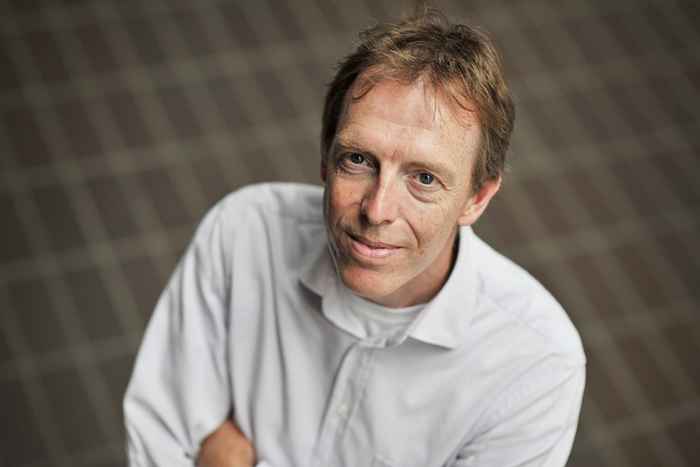Dr E. de Jonge
24 July 2008
Dr E. de Jonge (1958) has been appointed Professor of Intensive Care, with a special emphasis on the efficacy of care, in the Faculty of Medicine at the University of Amsterdam (UvA).

Dr E. de Jonge (1958) has been appointed Professor of Intensive Care, with a special emphasis on the efficacy of care, in the Faculty of Medicine at the University of Amsterdam (UvA).
Evert de Jonge's research focuses on measuring the effectiveness of Intensive Care (IC) based on comparative studies of IC patients in different hospitals in the Netherlands. Reliable results are obtained by correcting patient mortality figures for the average severity of illness at the time of IC admission. De Jonge also investigates factors that have an impact on treatment results, such as IC unit organisation and the various types of treatments used. Ultimately, his research aims to improve the quality of IC-unit care. Data on IC-treatment results and severity of patient illness are collected in the National Intensive Care Evaluation (NICE) database.
Another of De Jonge's research interests centres on forecasting treatment success for individual patients. Such forecasts are made using both mathematical models and the expert knowledge of physicians and nurses. Rather than being intended to justify refusal of IC care in cases with a low likelihood of successful treatment, this research aims to ensure that patients and their families make their decisions based on the very best information available. When given a choice, patients with severe illnesses do not always want intensive, life-extending treatments and choose instead for palliative care geared towards comfort and the alleviation of pain and distress. Studies have shown that patient preferences are guided to a significant degree by the likelihood of recovery and of a good quality of life. Reliable information about these issues can aid patients in deciding whether or not to opt for IC care.
De Jonge has worked as a member of the Intensive Care staff at the Academic Medical Center (AMC) since 1994. He has been the Deputy Director of Intensive Care since 1998 and the Deputy Intensive Care Trainer since 2000. De Jonge also serves as a board member and consultant for various organisations. He is Chairman of the NICE foundation and a member of the Intensive Care Committee of the Netherlands Association of Internal Medicine. He has been the Editor of the Nederlands Tijdschrift voor Geneeskunde since 2006.
Evert de Jonge's research focuses on measuring the effectiveness of Intensive Care (IC) based on comparative studies of IC patients in different hospitals in the Netherlands. Reliable results are obtained by correcting patient mortality figures for the average severity of illness at the time of IC admission. De Jonge also investigates factors that have an impact on treatment results, such as IC unit organisation and the various types of treatments used. Ultimately, his research aims to improve the quality of IC-unit care. Data on IC-treatment results and severity of patient illness are collected in the National Intensive Care Evaluation (NICE) database.
Another of De Jonge's research interests centres on forecasting treatment success for individual patients. Such forecasts are made using both mathematical models and the expert knowledge of physicians and nurses. Rather than being intended to justify refusal of IC care in cases with a low likelihood of successful treatment, this research aims to ensure that patients and their families make their decisions based on the very best information available. When given a choice, patients with severe illnesses do not always want intensive, life-extending treatments and choose instead for palliative care geared towards comfort and the alleviation of pain and distress. Studies have shown that patient preferences are guided to a significant degree by the likelihood of recovery and of a good quality of life. Reliable information about these issues can aid patients in deciding whether or not to opt for IC care.
De Jonge has worked as a member of the Intensive Care staff at the Academic Medical Center (AMC) since 1994. He has been the Deputy Director of Intensive Care since 1998 and the Deputy Intensive Care Trainer since 2000. De Jonge also serves as a board member and consultant for various organisations. He is Chairman of the NICE foundation and a member of the Intensive Care Committee of the Netherlands Association of Internal Medicine. He has been the Editor of the Nederlands Tijdschrift voor Geneeskunde since 2006.